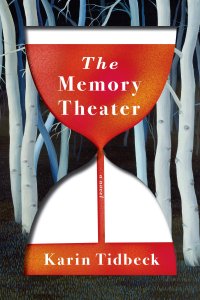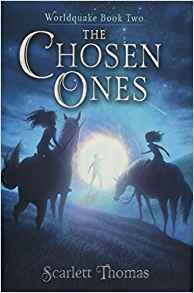Paul Di Filippo Reviews The Memory Theater by Karin Tidbeck
 The Memory Theater, Karin Tidbeck (Pantheon 978-1524748333, 240pp, $25.95, hardcover) February 2021
The Memory Theater, Karin Tidbeck (Pantheon 978-1524748333, 240pp, $25.95, hardcover) February 2021
When I reviewed Karin Tidbeck’s story collection Jagannath at The Barnes & Noble Review, I said that it distilled and hybridized “almost every writer in the VanderMeers’ massive anthology The Weird. A century’s worth of potent surrealism and estrangement surge through her veins and onto the page.” With the publication of her new novel, I’ll have to refine my description of her work, at least in this instance, because the book reveals that it is the sharp arrow tip of one particular lineage of fantastika, not inclusive of every possible type. (And really, how could a novel, as opposed to a short-story collection, aesthetically incorporate a million different styles and emerge organically whole?)
Tidbeck’s book flows directly from the Ur-master of the whimsically uncanny and disorienting, Lewis Carroll. It picks up mythic fairy-tale resonances from George MacDonald, and some quotidian creepiness from Arthur Machen, and wry feyness from James Branch Cabell. There’s a big jump next to Mervyn Peake, and then another leap to John Crowley, Graham Joyce, Lisa Goldstein, Walter Moers, and, fittingly enough considering the start of the trail, another Carroll—Jonathan. We might adduce Jack Vance’s Lyonesse Trilogy as a side branch.
How to characterize her tale, other than by pointing at predecessors? It’s a narrative that blends unearthly estranging motifs and incidents with a vivid naturalism, in a low-key yet implacable manner that conjures up in the reader almost subliminal associations with potent mythic tropes. In other words, it disdains the tricks and traits of commodified fantasy in favor of more ancient methods and objectives, thus becoming timeless in its effects.
I’d relish walking through every single astonishing incident in this story with you, but that would certainly spoil your enjoyment of the action. So while hoping to convey the flavor of this wonderful story, I am going to have to be sparse, and hide much of what happens. You’ll thank me for this when you start your own reading, which you surely must!
We open instantly and without any hand-holding explication in a place called the Gardens, which, we soon learn, is populated by a small group of cruel decadent immortals, who pass their time in foolish hedonism. As servants, they maintain a corps of stolen human children. So far, so familiar, Elf Hill and Tannhäuser style.
Thistle, a boy, is one such slave, and one-third of our focus. His mistress, the wanton and brutal Augusta Prima, is the second character around which the story will pivot. The last node of interest is the one truly anomalous inhabitant of the Gardens, Dora. One of the immortals once frivolously requested a child, and Dora is the result. She was conjured from semen and soil by a demiurgic figure named Ghorbi, who visits the Gardens from time to time.
Dora and Thistle are the best of friends, and wish to escape the Gardens. Especially since Augusta seems on the point of slaying Thistle and replacing him with fresh meat. They achieve their goal, but in a most unexpected way. Augusta herself is sent into exile for an unforgivable crime. Dora and Thistle follow her, because Augusta still possesses the one thing Thistle most desires: his real human name.
But once outside the Gardens, Augusta eludes the human boy and the half-stone girl (their relationship made me flash on a similar friendship in Helene Wecker’s The Golem and the Jinni), and they find themselves wandering backstage in a realm that serves as a transit nexus for the whole multiverse. (Shades of Moorcock’s Second Ether!) There they encounter a troupe of actors, the Memory Theater, whose performances in some way instantiate reality. After a profitable and pleasant time with the cosmic mountebanks, Dora and Thistle end up on our Earth, in the 1940s, hot on the trail of Augusta.
That careless monster, meanwhile, has adapted to these new terrestrial circumstances and continued to exert her powers. When Dora and Thistle finally catch up to her, after numerous roadblocks, they will find her still a formidable foe. Can anything be reclaimed from her path of destruction?
Tidbeck, as you might know, is a Swedish author, and I am uncertain which language she uses for first drafts. But this novel, boasting no translator, is her own coinage, and it shows a level of unassuming but beautiful prose which many a native speaker might envy.
And there was Euterpe, naked in the rhododendron, overtaken by growth; ferns shot up like spears through her chest, unfurling in the sunlight. Everything was quiet save for the rustle of growing things. The air smelled of dew and grass and rot. It was dawn.
The whole book is fleshed out in this kind of elegant and harmonious prose which never strains for melodramatic effects, but which still hits forcefully when needed. And yet, as with Cabell, there is a subliminal remove from total immersion in the passions and anguish of the players, as if the narration derives from a god above the whole fray. This comes out especially when Ghorbi is onstage. And yet with the sections focused on the Memory Theater, we get lots of earthy humor and classic Shakespeare-cum-carny camaraderie, a la The Circus of Dr. Lao. And the 1940s-era mimesis is a fine historical-novel performance.
Taken all in all, this sophomore novel from Tidbeck is a remarkable accomplishment, full of eerie magic, human pathos, and mystical urgings. I suspect the Memory Theater troupe is applauding themselves for introducing this book to our reality.
 While you are here, please take a moment to support Locus with a one-time or recurring donation. We rely on reader donations to keep the magazine and site going, and would like to keep the site paywall free, but WE NEED YOUR FINANCIAL SUPPORT to continue quality coverage of the science fiction and fantasy field.
While you are here, please take a moment to support Locus with a one-time or recurring donation. We rely on reader donations to keep the magazine and site going, and would like to keep the site paywall free, but WE NEED YOUR FINANCIAL SUPPORT to continue quality coverage of the science fiction and fantasy field.
©Locus Magazine. Copyrighted material may not be republished without permission of LSFF.







